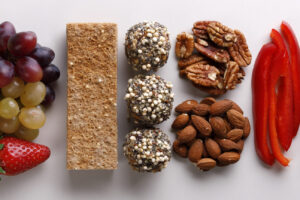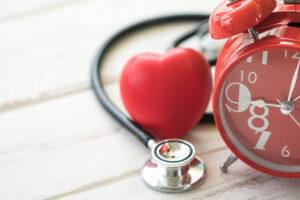If you’re constantly tired, suffer from headaches and find it hard to concentrate, you may think your busy life is catching up to you. But these symptoms could also signal iron deficiency — a nutrition deficiency impacting millions of people worldwide, particularly women. Iron deficiency is often missed because the signs can overlap with other conditions.
Understanding Iron Deficiency
Iron is a critical mineral that plays a key role in producing hemoglobin, the protein in red blood cells that carries oxygen throughout the body. Iron deficiency occurs when iron intake is too low or when iron is lost faster than it can be replaced.
“Symptoms start as fatigue and weakness but can increase in severity if iron deficiency progresses to iron deficiency anemia,” says Rohan Mehta, MD, a hematologist/oncologist with Atlantic Medical Group Oncology at CentraState. “With iron deficiency anemia, you can’t produce enough hemoglobin and your cells receive less oxygen, causing symptoms like dizziness, rapid heartbeat and cold hands and feet.”
Fortunately, iron deficiency and iron deficiency anemia can be treated with an iron-rich diet, supplements and iron infusions if needed. However, according to Dr. Mehta, it can take time to restore your iron supply because iron loss is cumulative.
Tips for Preventing Iron Deficiency
According to the National Institutes of Health, your body absorbs only about 10% to 15% of the iron you consume. This rate can vary based on overall health and the type of iron. Dr. Mehta recommends these tips:
- Eat an iron-rich diet. Include foods like red meat, seafood, lentils, spinach, nuts, eggs and fortified cereals.
- Pair iron with vitamin C. Foods high in vitamin C – like citrus fruits, broccoli and kale – can help boost absorption.
- Mix animal and plant iron sources. Animal sources absorb more efficiently.
- Reduce processed foods. Opt for anti-inflammatory choices like fresh fruits and veggies. Inflammatory foods can disrupt iron storage and use.
- Consider supplements if at risk. Consult your healthcare provider before starting any supplement.
Who’s Most at Risk and Why
- Women of childbearing age- menstruation can lead to significant iron loss
- Pregnant women- More iron is needed for supporting the baby
- Vegetarians & vegans- Plant-based iron is harder to absorb than animal-based iron
- People with gastrointestinal issues- Conditions like celiac disease, inflammatory bowel disease and peptic ulcers can impair absorption
- Athletes- Endurance sports can cause iron loss through the GI tract
- Regular blood donors- Too frequent blood donations can deplete iron reserves
If you think you may be iron deficient, talk with your physician. A simple blood test can confirm iron deficiency, allowing for early treatment to prevent anemia.
FIND A PHYSICIAN
To find a physician, visit CentraState Medical Center’s online Physician Finder.





